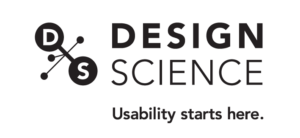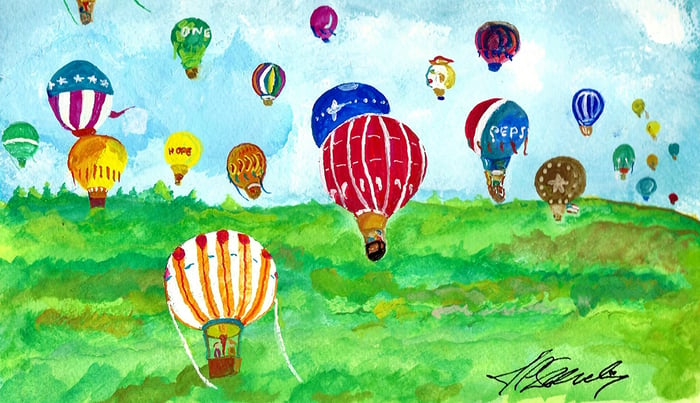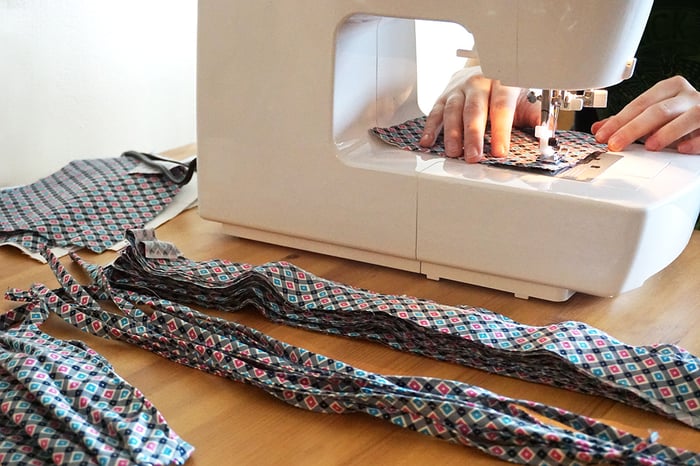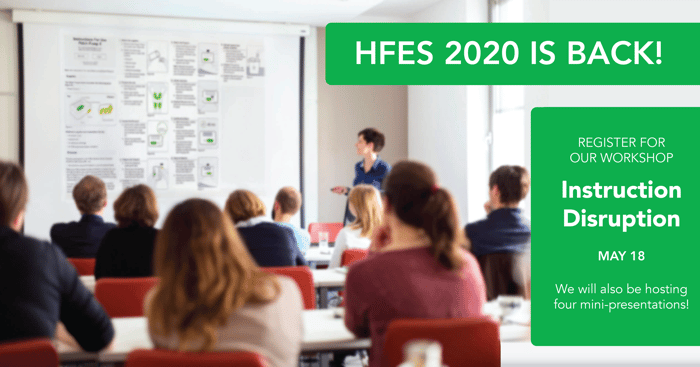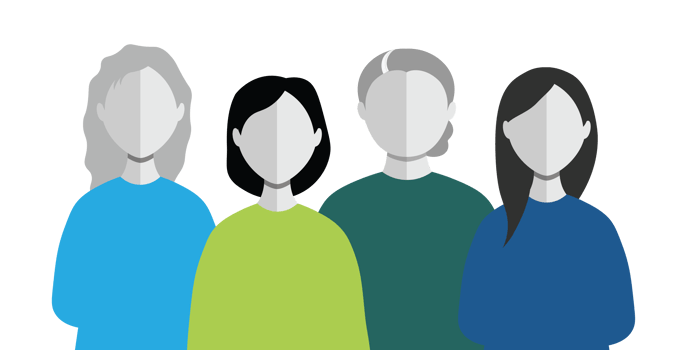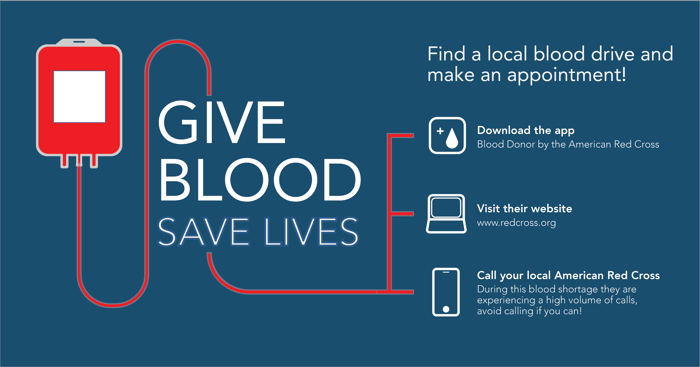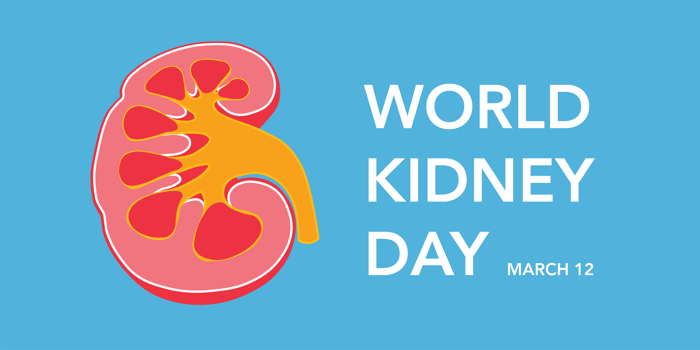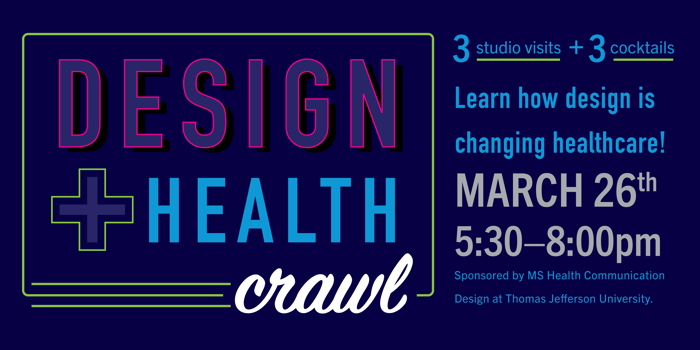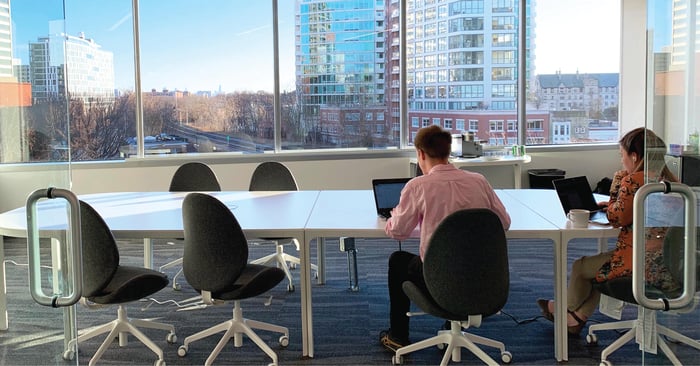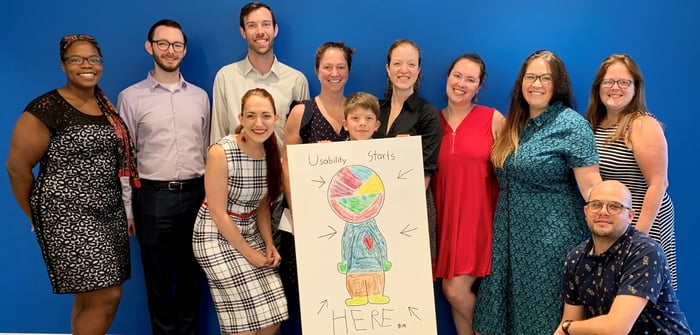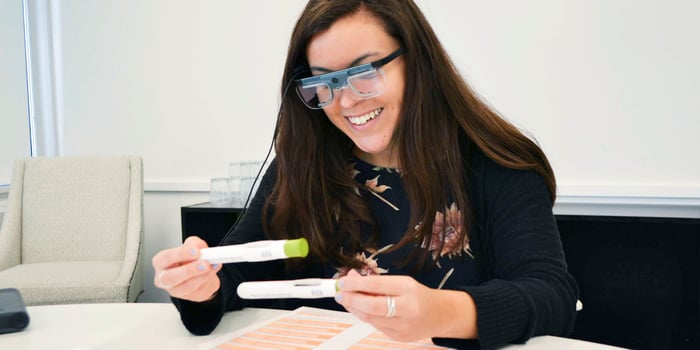With the monotony creeping in on what is now week 4 of social distancing for us at Design Science, the shorter commute and all-you-can-eat lunches are starting to lose their charm. Since there are only so many news cycles you can tune into before abandoning all hope, we reached out to a group of participants who are known to look on the brighter side of things for more creative ways to spend our. Read more
Thousands of people are making home-made face masks to combat COVID-19. How can you help?
/ in involvement , covid19 , worldhealth / by Dani BannerEvery day, more and more hospitals and care centers are facing supply shortages due to COVID-19. Many medical professionals are resorting to re-using their masks for days, which increases their own risk of illness. Fortunately, thousands of people around the world have decided to take action right from their homes. Sewing experts and beginners are picking up their sewing machines to make. Read more
The 2020 HFES Healthcare Symposium is back… and it’s virtual!
/ in conference , HFES , human factors , instructions for use , workshop / by Michelle KannegiserIt has been a few weeks since the decision was made to cancel the HFES Healthcare Symposium in light of the increasing spread of COVID-19. We are happy to announce that you can now put it back on your calendars, no travel necessary. May 18 to May 21, 2020 you will be able to access the same great lectures and workshops from a seat on your couch. Read more
Data and Equality
/ in human factors , user research , activism , Women in Data / by Michelle Kannegiser, Dani Banner, Emily Borst and Anna O'DonnellDesign Science proudly recognizes that more than two-thirds of our employees are women, especially as we come to the end of a whirlwind Women’s History Month. Read more
Stay safe, stay healthy and if you can, donate!
/ in healthcare , philadelphia / by Michelle KannegiserIn addition to staying home there are also more active roles we can play to minimize the effect that COVID-19 has on our community. We at Design Science explored ways to donate blood to assist with the nationwide blood shortage. Blood centers are urging people to donate, and they are taking every precaution to protect their staff and donors from getting sick. Read more
World Kidney Day 2020
/ in healthcare , worldkidneyday , kidney / by Carmella Lee and the Design Science TeamWhen my brother Michael was diagnosed with polycystic kidney disease, at age 40, he realized he had to make lifestyle changes to ensure he was around as long as possible for his young family. He must now be vigilant about taking medications that he knows won’t harm his kidneys, work to maintain a healthy weight, and monitor his blood pressure so that he can manage his disease and live a more. Read more
In 2020 we are more design literate than ever, taking only moments to identify design in the world around us. It is in front of us at the self-check-out line, flashing above us on the crosswalk, and literally in the palms of our hands. Design influences all aspects of our community to create improved experiences. But how often do you recognize design in the doctor’s office, the hospital, or when. Read more
Our Chicago office is Open!
/ in research , strategic design thinking , team , update , chicago , community , culture , design science , design thinking , HF , Inclusive Design , life at DS , new , new year , news , office , ux / by Design ScienceIt is official! Design Science has just opened our Chicago office, offering all the same services as our Philadelphia location. Being here will open up so many opportunities for us to take on more studies and projects in the coming year. We hope that our clients and participants will join us in the near year as we embark on this amazing adventure together. We are located just off the Davis Street. Read more
Artwork and Activism: DS Welcomes Rare Disease Activist Max Schill
/ in design science , Rare Disease , rasopathies , maxschill , Max Schill , noonans , Cures 2.0 , advocate , activism , curesnow / by Dani BannerDid you know that there are over 7,000 rare diseases in the world and 95% of them don’t have treatments? That’s why ten-year-old activist Max Schill is fighting to make sure all patients get the care they need. When he’s not in school or advocating for bills in Congress, Max has another way to help the community: through art. Read more
7 Practical Tips to Get More Value from Eye Tracking Research
/ in research , study design , usability testing , data visualization , eye tracking , human factors , innovative technology , medical product design , user research / by Ranjan NayyarWorking on numerous eye tracking studies over the last two years, I feel I have gained the authority to say a word or two on eye tracking research. The research method is critical to our work at Design Science and has found itself to be ever more promising our clients and to us than ever before. Using eye tracking successfully in the field requires both a firm grasp on the theory and practical. Read more
